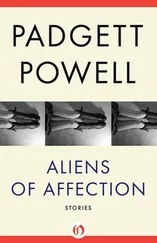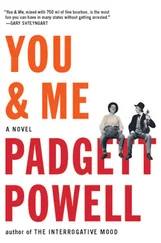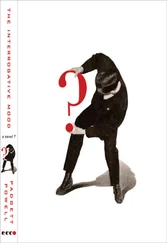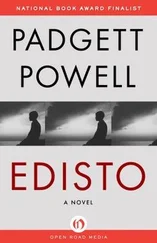“And what the hell is contractor’s bottom?” one of them said, from the dark.
MRS. HOLLINGSWORTH HAD MORE doubts about her list, and she was getting tired of them. As ’twere a profanation, she said to herself, recalling the little Donne she knew and liked, of Forrest and the bones of boys — and what about, in sketching these two fond lunatic fools, profaning the memory of the victims of Ted Bundy and indeed — look both ways! — the memory of John Kennedy. What about this?
She put an egg on to think and put eggs on the real list.
It came down to this: how do you profanate the already profane? As much as she detested the craven driving around in their Volvos with their children in crash helmets, there was a reason they were driving around out there like that. Bundy and Oswald were out there littering Wal-Mart parking lots with used Pampers and otherwise trying the burglar bars on their homes. The prisons were full of bad dudes, which was alleged an expression of racism and classism, but it seemed to her, and to the people in the Volvos, that it was an expression of bad dudes knocking people in the head. It was a wreck out there. Forrest had not hidden, and she was hiding, so there be it.
Silly or not, the little love and hope in her golden room over the café were greater than those that operated outside that room in the world outside, or inside, her kitchen. Turner’s contractor’s bottom was handsomer than the plumber’s ass likely to come into her own kitchen if she made a real phone call. She could do nothing about the casualties of war, past or present, and nothing about the souls of the victims of murder, except to entertain herself as best she could while she herself became a spindly skeleton preparing to get into her own uneven grave.
Her Bundy and her Oswald were proving noble in the vigor of their lunatic stupidities. Like any party crashers, they stood a chance of livening things up, if they did not turn out to be utter boors. She was starting to like them, uninvited or not. Where had she got the notion that she could invite, or not, to this party? If to list was to listen, and you listened, you did not speak, you heard.
ONE MORNING AN EARLY part of the list caught Mrs. Hollingsworth’s eye. She had entered an item called First Breast Not of One’s Mother. Why had she not entered an item called, say, First Member Not of the Father? Why would a woman enter a Breast and not a Member? She had written of the man’s desire for the woman, and not of the woman’s for the man. She could not entertain a section called Member. What Sally thought of Lonnie’s tallywhacker, a word it occurred to her Sally might have used back then, for reasons she could not fathom, she had no idea. Had Sally been in love that way with Lonnie? She thought so. So why all breast, no glans?
It was as good a thing in the erotic landscape as a tit, certainly, but she did not want to dwell on it. Why would not a fully modern woman want to ponder a penis if she was prepared to dwell on a breast, and in particular on a man’s fond apprehension of a breast? Was she a fully modern woman? She hoped not, but this did not convey to her what she was, or what she preferred to be instead. Women had been martyrs, angels, seed vessels, plowhorses, helpmeets, home economists, hearth sweepers, sucklers, stand-by-their-mans, and now were soldiers except for combat and had cell phones in their pants pockets talking worse realtor/CEO goop than their male peers. What was she?
What did it, life, amount to? If you actualized yourself, became as talented as you could at what you could, bettered yourself in every way indicated desirable by the arbiters of culture in your surround, well then were you not but a fattened bee among the not so fattened bees all around you, all of you going to buzz along chewing something up and spitting something out until you buzzed no more? Now this here was a better bee than that one there. See? It’s got more a them little hairs on it, like. Was it going to be better if you had hummed to Mozart?
A breast was a sexier thing than a schlong, is what it amounted to. She kept her list as it was.
— THAT A “BEREAVED” RIGHT there, I’d say, Hod. He talkin bout beatin somebody up back inside the funeral home.
— What, that thing hears what they say too?
— I guess. How the hell you gone know they saw Forrest?
— By when they run into the next county if it’s anything like what Turner showed us. Hodhawmighty, that fire thing was something—
— Yeah, but how you gone know what they thinking? Why they runnin, Hod? “Critical part,” I recall Mr. Turner saying, and you noddin like a schoolgirl, like you in love with his ass, and now you don’t seem to remember what you noddin at.
— I am in love with a man what give me the kind of money we getting for aiming this … whatever the fuck it is at people, I confess.
— Say he should beat up a dork in there.
— Who?
— Damned target there, Hod. Hello? You spose dork-beatin-up is a positive character trait for the New Southerner?
— I would think that a outright indispensable trait, Rape. Track on him. I got to pee.
— THIS WAS A NICE room.
— Yes. Was?
— I think we should go.
— Why?
— A, because you busted up the floor digging your way in. B, fish can flood into the room, according to you. C, Bundy and Oswald are stalking us, according to you. D, it’s about time I consulted the sages on the sward, who will tell us where to go, what to do, in Life, they being Masters.
— E, you’re too tired to get up and do anything about Bundy and Oswald; F, how about I was the waitress in that café down there who had precious little else to do but try out a free man upstairs, and did not eat through the floor. That, my friend, is a dumbwaiter patch from yesteryear. My name is Sally, but it wasn’t Sally, if that makes any sense to you.
— That doesn’t make any sense to me, Sally not Sally. Don’t say those things. They are vicious and cold and true. You clawed through that floor, now miraculously repaired and our best asset, like a nutria after a honeybun, and you were, in some surreal fog that inhabits the better part of my real brain, a girl named Sally with whom I was so purely and gonely in love for a second five hundred years ago that I cannot now afford to remember the moment and hardly the fact but in discrete snatches or curly wisps if you will of that fog, and then a pitchfork tine in my heart, somehow. And then I saw you at my father’s funeral and you were new to me but I could not love anymore and so stood dully before you. Isn’t this the way it really was — is? Won’t you sit on that black-lacquered chair in that orange light and let me behold your ligne pure? And can you deny Forrest?
— I never heard it called that before. No, I cannot deny Forrest.
— You cannot deny a man you have seen melt into the ground. There are positions and counterpositions in this logical postlogical plausible-deniability world of ours, where the cell phone and blather and the brain tumor rule, but you do not deny that a man has melted into the ground.
— If I sit on the chair, we do not leave the room?
— We do not. The chair, the window, the room, are all we need. And that radiator over there.
— WHAT ABOUT THEM OTHER boys there, acryin?
— No no, we want thatn what talkin about beatin up somebody inside a funeral home. That the one, Rape. Something about that perfect.
Читать дальше












